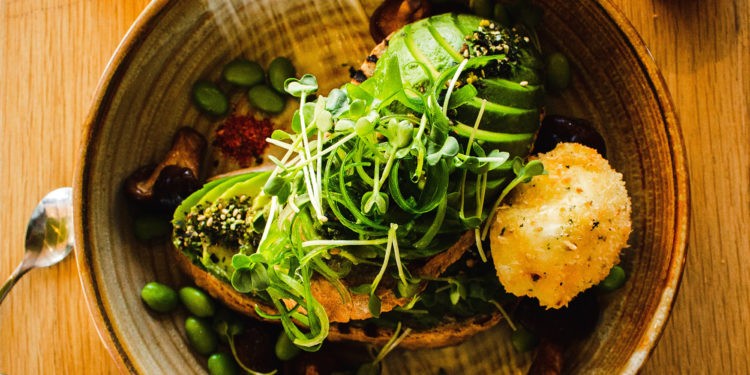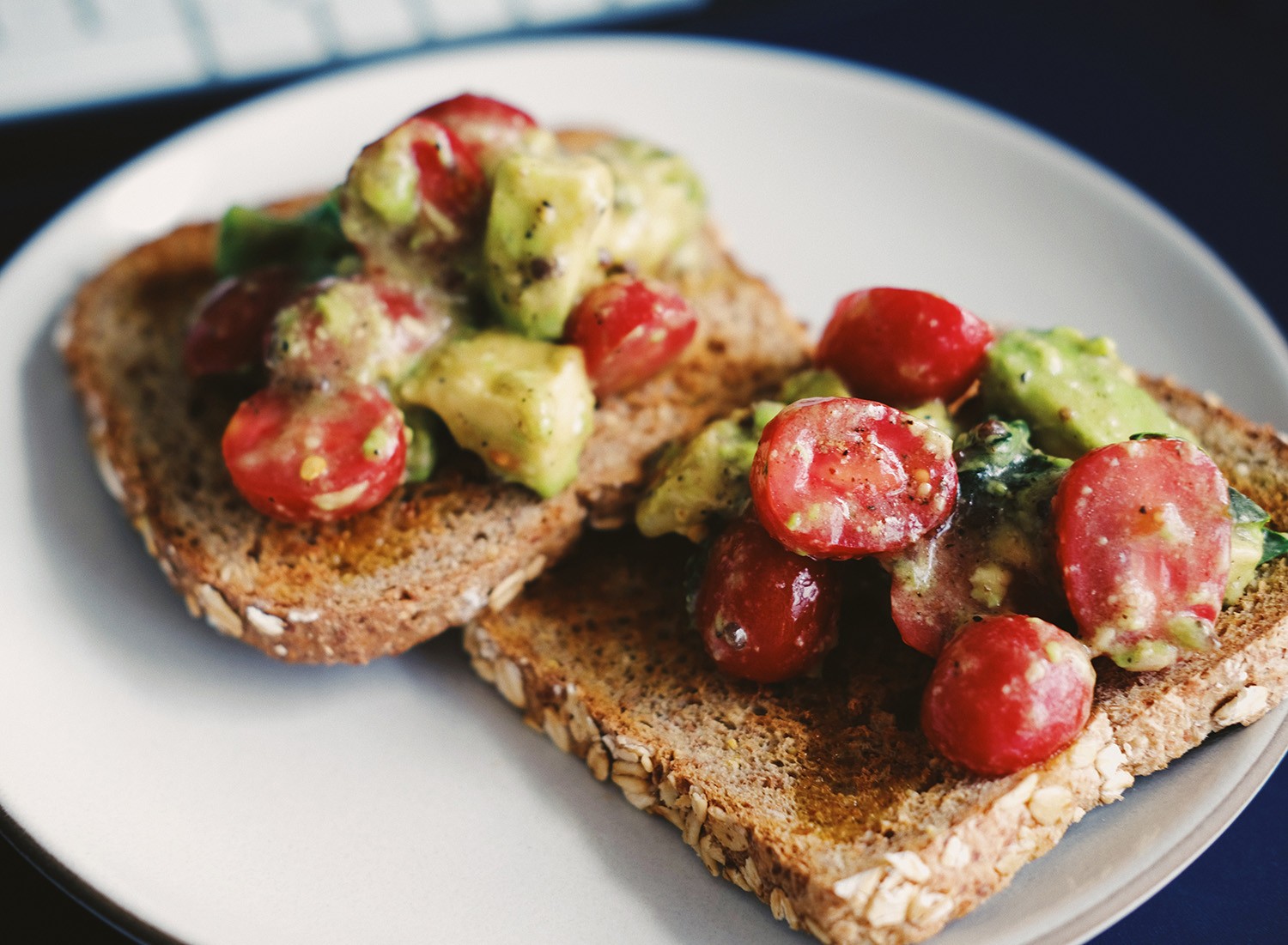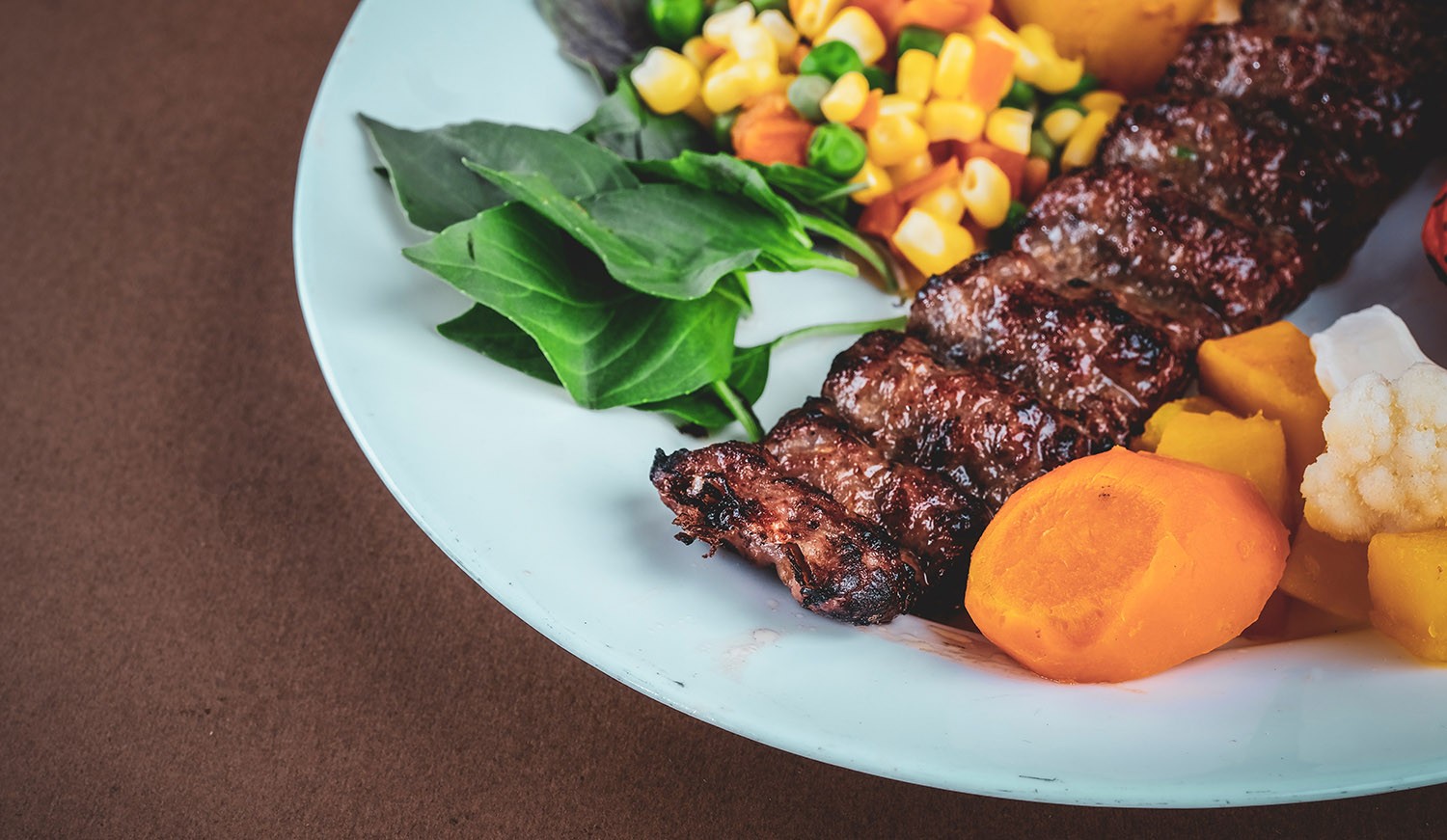Are Whole Foods Worth the Hype?

Story by Annie Eller, RD LD: contact@annieellerrd.com
Phrases such as “focus on whole foods” or “avoid processed foods” have become increasingly popular over the years. There are even restaurants and health cafes dedicated to the idea that we shouldn’t be eating anything from a package. So, is there any truth to these claims? Or is this just another way to trick consumers into buying expensive health foods?
The short answer is yes, eating a diet of mostly whole foods can be beneficial for many reasons! However, it’s important to define what eating whole foods means and what this might look like day to day.
Let’s start by defining what “whole foods” are. The term whole foods just means the food item has been processed or refined as little as possible. Some examples of whole foods are whole grains, fruits, and vegetables. Think foods with shorter ingredient lists! Now this doesn’t mean that you can’t eat any foods that are processed, but the goal is to aim for most of your plate to be made up of whole foods.

In contrast, we need to also define what the term “processed” means. “Processed food” is not always synonymous with “bad.” The word processed has many interpretations. For example, baby carrots are technically “processed” to get their size/shape, but we know carrots are very beneficial to health. In other words, not all processed foods are created equally. Keep this in mind when you see negative ads about these foods. Sometimes using “processed foods” such as the baby carrots mentioned above can actually make eating healthy foods more convenient! As a general rule, try to practice moderation with ultra-processed shelf stable foods such as crackers, pastries, candy, chips, etc. and aim to eat more whole grains, fruits, veggies, and lean proteins. Even if said fruits, veggies, and whole grains have gone through minimal processing (ex: flash freezing, canning, etc.).
So now let’s evaluate the benefit of consuming a diet of mostly whole foods. The biggest benefit is these foods have a significant amount of essential micronutrients (vitamins and minerals) that our bodies need to function properly. Vitamins and minerals are responsible for supporting a healthy immune system, are essential for growth and development, and allow our organs to function properly. If you are lacking in essential vitamins and minerals, chances are you will feel the impact. You might be lacking energy, have brain fog, have joint pain, etc. Long story short, the advantage to eating a whole foods diet is fueling your body properly and feeling your best! Additionally, eating these nutritious foods regularly can also reduce risk for chronic diseases. Research shows that individuals who follow a diet high in fruits, veggies, and whole grains are less at risk for type 2 diabetes and heart disease. Much of this is attributed to the fact that these foods pack such a nutritious punch and are full of healthy fiber! Whole foods also naturally have less sodium, added sugar, and saturated fat, all of which are more prevalent in high calorie snack foods such as chips, boxed dinners, and frozen pizza.

Take a real life example to demonstrate this concept; let’s say you get home from work and are hungry for a snack. You typically reach for chips because they taste good and are easy. One serving of chips is going to give you energy (calories) which is what your body is looking for, but beyond that, there won’t be much benefit in terms of nutrients. However if you opt for some whole foods such as pistachios and berries you are getting a great dose of vitamin C, potassium, and fiber. You will also get heart healthy fats and protein from the nuts. Additionally you will have balanced blood sugar, another serving of fiber and protein for the day, and essential micronutrients to support your overall health. It’s simple decisions like this that can add up over time and keep you healthy and functioning at your best! Here are some other whole food swaps for healthier snacking:
Cheese crackers ⇔ low fat cheese stick
Granola bar ⇔ greek yogurt with oats sprinkled on top
Fruit snacks ⇔ cotton candy grapes
Potato chips ⇔ unsalted mixed nuts or popcorn
Small and sustainable steps are best, no need to overhaul everything at once. With this information, you might feel inspired to make some changes to your daily meals and snacks. That’s great! Here are some quick tips and tricks to make it easier to consume whole foods regularly:
1. Plan ahead! This cannot be stressed enough. The reason we reach for ultra-processed foods too often is because they are convenient and always available. Having whole foods available might take a little extra consideration and planning each week, but it is doable, even for those with hectic schedules. Plan (and maybe even pack) your meals and snacks the night before so you have little fuss in the morning and still have healthy fuel for your day. You’ll be much better off having some carrots and hummus at your desk instead of resorting to the vending machine.
2. Use shortcuts! There is no need to meal prep for hours and hours on the weekend in order to have fresh food available. It is OK to rely on some healthy convenience foods to make this easier. Some healthy shortcuts could be things such as canned fruits (without added sugar), frozen veggie blends, pre-chopped produce, canned chick peas and beans, quick oats, frozen turkey burgers, etc.
3. Start small! If your current lifestyle involves a lot of takeout, high calorie snack foods, sugary drinks, or boxed dinners, you might be feeling a little overwhelmed thinking about changing your whole routine. Start small so you don’t get burnt out and quit all together. Start with making your own lunch for work instead of grabbing a slice of pizza, or snack on fruits and veggies that you enjoy versus chips. It’s acceptable to pick a couple of small things to change at first and then develop more healthy habits over time.
you might be feeling a little overwhelmed thinking about changing your whole routine. Start small so you don’t get burnt out and quit all together. Start with making your own lunch for work instead of grabbing a slice of pizza, or snack on fruits and veggies that you enjoy versus chips. It’s acceptable to pick a couple of small things to change at first and then develop more healthy habits over time.
Looking for more information on whole foods and/or other nutrition advice? Ask your physician for a referral to see a registered dietitian or find a dietitian in your area by searching “dietitian near me” online! Need quick tips and tricks for eating a healthy diet? Follow @annieellerrd on instagram or reach out via email contact@annieellerrd.com






